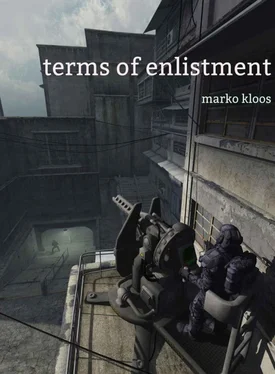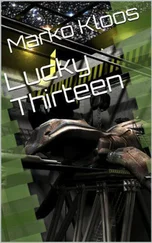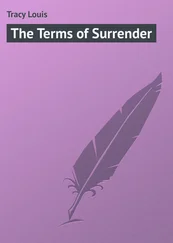“The TA assumes that you can figure out for yourself how to get squared away in the mornings,” Priest says from the bunk above mine. “Just don’t miss Orders out in front of the building at 0700, or you’re in deep shit.”
“Got it,” I say.
It’s an odd experience to be left alone in the morning. Back home, I never got out of bed before nine or ten o’clock, but twelve weeks of boot camp have turned me into an early riser. There was no freedom in Basic Training—with twice as many recruits as sinks, toilets, and shower heads, nobody had much time for leisure in the mornings—but there was also a certain sense of purpose. You could simply turn off your brain and follow the pack, and there was comfort to the predictability of the routine. Now I have to check the clock and take charge of my schedule once more, and as much as I like being able to take my time in front of the sink or in the toilet stall, I find that I miss the rigid structure of Basic a little.
So I do what I’ve been doing since I got off the bus at NACRD Orem—I follow the pack.
My squad mates don’t seem to mind when I tag along with the group to the chow hall. I fall back a little on purpose as we enter the chow hall, so I’ll be behind the others in the breakfast line, which will spare me from having to pick a table and then ending up sitting by myself. I watch the others with one eye as load up my breakfast tray, and then follow them to their table.
There are other soldiers sitting at the table as well, people I don’t know yet, and for just a moment I consider peeling off and picking my own table after all. Then Hansen catches my eye, and she waves me over.
“Don’t be shy, now. Have a seat, and I’ll introduce you to the rest of the squad.”
She pulls out a chair, and I put my tray onto the table before sitting down.
“Guys and girls, this is Private Grayson. He’s the new guy for this quarter. Grayson, this is the whole squad. These four clowns are in the room next to ours.”
The other members of the squad size me up just like my roommates did yesterday, and I nod at them.
“Thank God,” one of them says. “That means I’m officially no longer the FNG. Thank you, Grayson.”
“My pleasure,” I say. “Just make sure you pass along the handbook, okay?”
“Oh, there’s not much to it. Just keep the fridge in the room stocked, and make sure everyone’s boots are shiny every morning.”
“Don’t listen to Phillips,” Hansen says. “If the job required being good at anything, he would have been fired on Day Two.”
Hansen introduces the rest of the squad to me one by one. Phillips is a tall, freckle-faced guy with wiry red hair and glasses with little circular lenses. Jackson is an equally tall and thin black girl. She wears interesting tattoos under her eyes, some sort of tribal pattern. Stratton is a steel-jawed recruiting poster model who would look terribly intimidating in his perfection if he wasn’t the shortest member of the squad by half a head. Lastly, there’s Paterson, whose buzz cut doesn’t quite conceal the fact that he’s going bald already. Jackson is a corporal, Stratton and Paterson are Privates First Class, and Phillips is a one-chevron private. I am the only member of the squad without a rank device on the collar.
“This is not a training unit,” I say. “I was sort of expecting some more advanced training. The other recruits in my platoon all went on to schools of some kind.”
“Nope, this is a field battalion,” Jackson replies. “TA infantry doesn’t need to send people off to school. You got the skills in Basic, and infantry business is just some more of that, only with live ammo. You’ll learn on the job with us, in the field.”
“We’re a pretty active battalion,” Stratton says. “We have one or two live calls a month. You’ll probably see combat before you have a chance to wear in those new boots.”
I chuckle at this, but none of the soldiers at the breakfast table seem to think Stratton is joking, and my chuckle just kind of dies in my throat when I realize that he isn’t.
“So you’re the new guy,” Staff Sergeant Fallon says when she enters our squad room. She’s a short woman, with dark hair that she wears in a ponytail, and she looks hard enough to beat up half the squad without much trouble. She wears her ICU sleeves rolled up like the Drill Instructors in Basic did, and the muscles on her arms look like steel cables.
“Yes, ma’am,” I say, and stand at attention, only to be waved off almost instantly.
“At ease,” Sergeant Fallon says. “Jesus, don’t those instructors over at the Depot remove the corn cobs before they send you off into real life?”
“I don’t remember having been issued any sort of vegetables, Staff Sergeant,” I reply, and Sergeant Fallon chuckles.
“A smartass. As if we didn’t have enough of those already. I think you’ll fit in just fine.”
The duty schedule in a field regiment of light infantry is pretty simple, at least for the grunts whose main job is to pull a trigger. When your job is to kill people and blow up stuff, you either learn about how to do your job better, or you practice the skills you’ve already learned. We spend as much time out in the field as we do on manuals and classroom instruction. Fort Shughart has its own Urban Combat training facility, of course, and every platoon gets to spend some time there every week, practicing attack and defense, much like in Basic. There’s a live-fire range, too, and Sergeant Fallon has me qualify on the M-66 rifle in my first week.
My issue rifle feels different from the training version somehow, even though it weighs the same, and operates in exactly the same fashion. Maybe it’s the knowledge that this weapon actually fires live rounds, flechettes that can pierce armor and flesh instead of harmless beams that merely trigger a computer protocol, but somehow I have a lot more respect for this weapon. We don’t practice with live ammo—the issue rifles fire blanks on the Urban Combat course, and training adapters on the muzzle supply the simulated projectiles—but at the firing range, there’s nothing virtual about the flechettes that leave the muzzle of my M-66.
The qualification course of fire for infantry soldiers consists of a hundred pop-up targets at random intervals and distances. I engage them all in turn, centering the reticle of my M-66 on the target and letting the computer determine the rate of fire. The rifle burps short streams of flechettes at each target, and most of the time, they fall down. The moving targets give me a bit of trouble at first, especially the ones that are moving laterally, but after a few missed silhouettes, I figure out the correct amount of lead, and my score improves.
“Not bad at all for a guy fresh out of Basic,” Sergeant Fallon says when I have finished the course and unloaded my weapon for safety inspection. “That’s a seventy-nine. Marksman score. One more hit, and you would have scored Sharpshooter. You can let it stand, or try for Sharpshooter or Expert.”
“I’ll try again,” I say, and Sergeant Fallon nods with approval.
“Marksman’s a good score for cooks and filing clerks, but the Expert badge looks better on an Infantry Class A. Not that it matters in the end, mind you. What really counts is how well you can shoot when your targets are shooting back.”
Two weeks after my arrival, we have a combat deployment. My boots aren’t even close to worn in yet.
“Don’t bother packing spare socks,” Sergeant Fallon says as we get geared up in our squad rooms. “We’re going light. Basic load only. We’ll probably be home for dinner.”
“Where are we headed, Sarge?” Stratton asks.
“Some milk run to the Balkans. Someone’s declared independence again, and they’ve aligned with the Sino-Russians. We’re just dashing over there in the drop ships to do an embassy evac.”
Читать дальше












